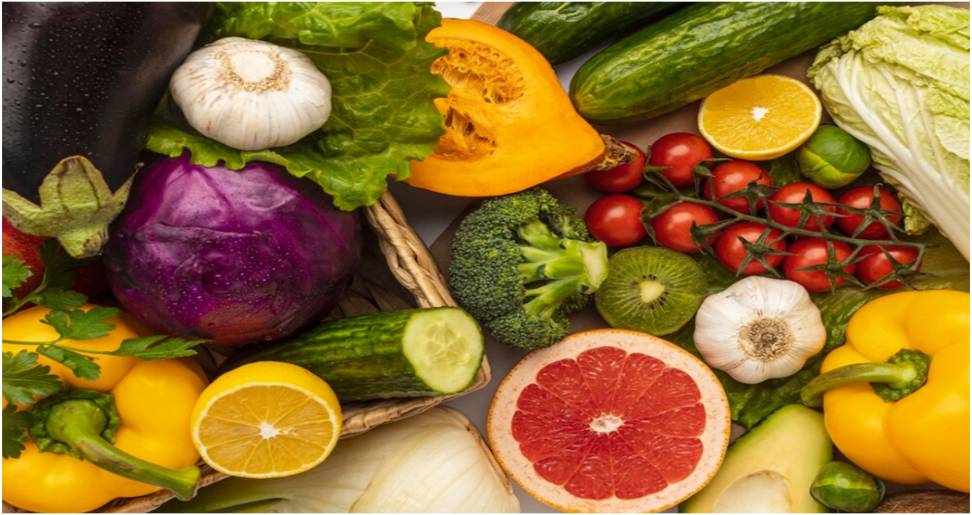Eating seasonal organic produce is one of the best ways to enjoy fresh, flavorful fruits and vegetables while supporting sustainable farming practices. Organic produce groceries, available at local farmers’ markets or specialty stores, offer a variety of benefits, including fewer pesticides and reduced environmental impact. Understanding what to buy and when to buy it ensures that you get the best possible quality and taste from your produce. This guide explores the seasonal availability of organic produce and provides tips on how to make the most of it.
Spring: A Time for Renewal
Spring ushers in a range of vibrant and fresh organic produce. As the weather warms, consider adding the following seasonal items to your grocery list:
- Asparagus: This tender vegetable is at its peak in spring. Look for firm, straight stalks with closed tips. Asparagus is perfect for grilling or roasting and pairs well with lemon and garlic.
- Strawberries: Organic strawberries burst with flavor in spring. They are delicious on their own or can be added to salads, smoothies, and desserts. Opt for bright red berries with a fresh green cap.
- Spinach: Tender and nutrient-dense, spinach thrives in cooler spring temperatures. Use it in salads, soups, or as a nutritious addition to smoothies.
Summer: The Peak of Variety
Summer is a bounty of organic produce, and the variety is impressive. Make sure to include these seasonal picks in your organic produce groceries:
- Tomatoes: Juicy and sweet, summer tomatoes are perfect for salads, sauces, and salsas. Choose tomatoes with vibrant color and a slight give when gently squeezed.
- Corn: Fresh organic corn on the cob is a summer staple. Look for husks that are green and tightly wrapped. Corn is great grilled or boiled and can be enjoyed on its own or as part of a side dish.
- Zucchini: This versatile vegetable is abundant in summer. It can be grilled, sautéed, or added to a variety of dishes. Choose small to medium-sized zucchinis for the best flavor.
Fall: Harvesting Rich Flavors
As the season changes, so does the produce. Fall brings a new array of organic vegetables and fruits that are perfect for hearty meals:
- Pumpkins: Beyond Halloween decorations, pumpkins are a nutritious addition to soups, pies, and roasted dishes. Choose pumpkins with firm, unblemished skin.
- Apples: Fall is apple season, and organic apples come in a range of varieties. Select apples that are firm and free from bruises. They are excellent for snacking or baking.
- Brussels Sprouts: These small, cabbage-like vegetables are at their best in fall. They can be roasted, sautéed, or added to salads. Look for bright green sprouts with a tight, firm appearance.
Winter: Cozy and Comforting
Winter may seem like a lean season for produce, but there are still plenty of organic options to enjoy:
- Citrus Fruits: Winter is the prime season for organic citrus fruits like oranges, grapefruits, and lemons. These fruits are packed with vitamin C and are perfect for adding zest to dishes or enjoying fresh.
- Kale: Hardy and nutrient-rich, kale thrives in winter. It can be used in soups, salads, or as a side dish. Choose dark green leaves that are crisp and free from wilting.
- Root Vegetables: Winter is the season for organic root vegetables such as carrots, sweet potatoes, and beets. These vegetables are ideal for roasting or adding to stews. Look for firm, unblemished roots.
Tips for Buying Seasonal Organic Produce
- Know Your Seasons: Familiarize yourself with what’s in season in your region. Seasonal produce tends to be fresher and more flavorful. Consult local farmers’ markets or organic produce groceries for guidance.
- Check for Freshness: When shopping for organic produce, check for signs of ripeness and freshness. For fruits, look for vibrant colors and firm textures. For vegetables, choose those without soft spots or wilting.
- Support Local Farmers: Purchasing organic produce from local farmers’ markets or grocery stores supports sustainable agriculture and reduces the environmental impact of transportation.
- Plan Your Meals: Incorporate seasonal produce into your meal planning to make the most of each season’s offerings. Seasonal recipes can inspire creative cooking and ensure that your meals are varied and nutritious.
- Preserve When Possible: If you have an abundance of seasonal produce, consider preserving it through canning, freezing, or drying. This allows you to enjoy the flavors of each season year-round.
By choosing seasonal organic produce, you not only enjoy the freshest and most flavorful fruits and vegetables but also support environmentally-friendly farming practices. Whether you’re picking up organic produce groceries from a local market or planning meals around seasonal ingredients, the benefits are both delicious and sustainable.
Additional:
- ABA’s Proposed Free Expression For Law Schools Gains Traction
- Man Arrested For Parachuting His Way Off Of Paris’s Eiffel Tower

